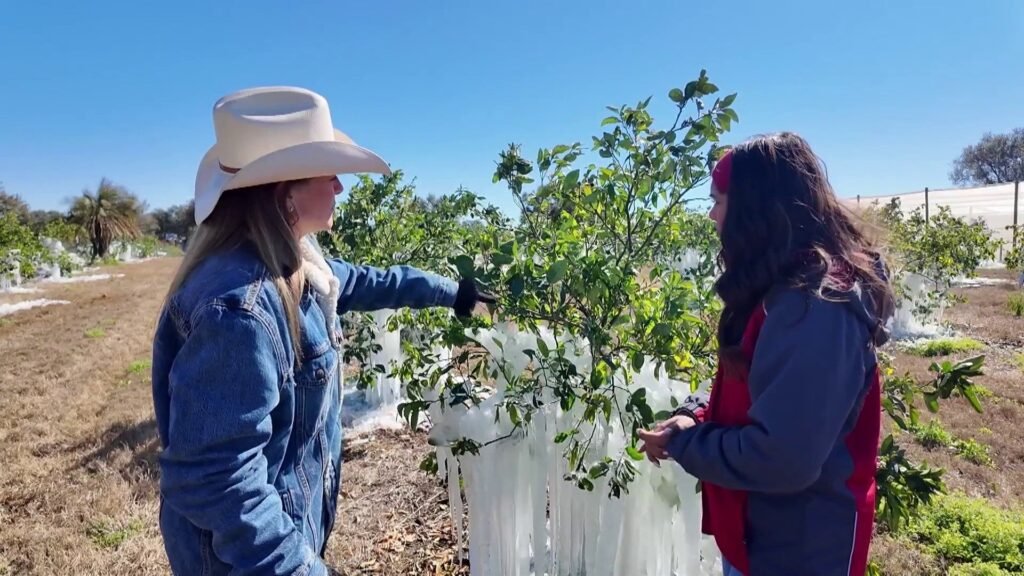Polk County, FL – Law enforcement and communities throughout Central Florida are on alert as Polk County Sheriff Grady Judd prepares to deliver a critical update at 1 p.m. today regarding the arrest of two teenagers in connection with a disturbing “swatting” investigation. With the prevalence of swatting incidents rising across the nation—and impacting nearby cities like Orlando—this briefing is significant for families, schools, and first responders throughout the greater Orlando area.
What is Swatting and Why is it Dangerous?
Swatting is a term used to describe the act of making a false report to emergency services, often claiming a violent crime is in progress at a particular location. The intent is to provoke a heavy police response—sometimes including SWAT teams—to the unsuspecting victim’s home or business. This dangerous hoax not only wastes valuable law enforcement resources but also puts innocent lives at risk.
Central Florida, including Orlando, has seen an uptick in these incidents, mirroring a national trend. The reasons for swatting can range from internet disputes to pranks, but the outcomes are anything but harmless. In several high-profile cases, swatting has led to property damage, trauma, and even fatalities. Local agencies, including the Orlando Police Department, have urged residents to remain vigilant and report suspected hoaxes immediately.
The Polk County Case: What We Know So Far
According to early reports, the two teens arrested in Polk County are believed to have orchestrated multiple swatting incidents. Sheriff Grady Judd has been at the forefront of investigating these cases, emphasizing the seriousness of the charges and the potential consequences for those involved.
While specific details of the arrests are expected to be revealed during the live press conference, sources indicate that the investigation involved both local and federal law enforcement agencies. The teens, whose names have not yet been released due to their ages, are facing charges that may include false reporting, misuse of emergency communications, and potentially more severe criminal counts if the swatting resulted in harm or property damage.
For Orlando residents, the Polk County case is a reminder that swatting is not limited by city or county lines. The digital nature of these crimes means perpetrators can target victims anywhere, and law enforcement agencies throughout Central Florida are collaborating to address the threat.
How Swatting Affects Orlando and Central Florida
Orlando, as a major metropolitan area with a large student population and vibrant online community, is particularly vulnerable to swatting incidents. Local schools, businesses, and even private residences have reported hoax calls in recent years, prompting large-scale police responses and causing widespread disruption.
Each swatting event ties up emergency services, diverts resources from real emergencies, and creates fear and confusion among residents. According to the Orlando Fire Department, every false alarm means that responders aren’t available for genuine crises elsewhere in the community.
Law enforcement across Central Florida are now investing in training and technology to quickly identify and verify the legitimacy of emergency calls. The hope is to reduce the impact of swatting, protect the public, and hold offenders accountable—regardless of their age or location.
What Can Orlando Residents Do?
Awareness is the first line of defense against swatting. Orlando-area residents are encouraged to:
- Educate family members—especially teens—about the dangers and consequences of swatting.
- Report suspicious activity or threats of swatting to local authorities immediately.
- Monitor online interactions and be cautious about sharing personal information that could be used by pranksters.
- Support local law enforcement initiatives to improve response protocols and prevent hoaxes.
Schools in Orlando and surrounding areas are also partnering with law enforcement to educate students and staff, hoping to deter swatting attempts and foster a safer environment for everyone.
Looking Ahead: Community Response and Legal Consequences
Sheriff Grady Judd’s update today will likely address not only the specifics of this case but also the broader efforts underway to combat swatting in Central Florida. As more teens become involved in digital pranks with severe real-world consequences, law enforcement is stressing that swatting is a serious crime—one that can lead to felony charges, expulsion from school, and a permanent criminal record.
For Orlando, continued collaboration between police, schools, and the public is key. Community leaders are calling for parents to talk openly with their children about the risks of online pranks gone too far. Additionally, state lawmakers are considering tougher penalties for swatting, recognizing its growing threat to public safety.
Conclusion
As Sheriff Grady Judd prepares to address the public with the latest developments in the Polk County swatting investigation, all eyes in Central Florida—including Orlando—are watching closely. Swatting remains a grave concern for our community, but with increased awareness, prevention, and strong legal action, we can work together to stop these dangerous hoaxes.
We want to hear from you! Have you or someone you know been affected by a swatting incident? What steps do you think Orlando should take to address this growing problem? Share your thoughts in the comments below.
















